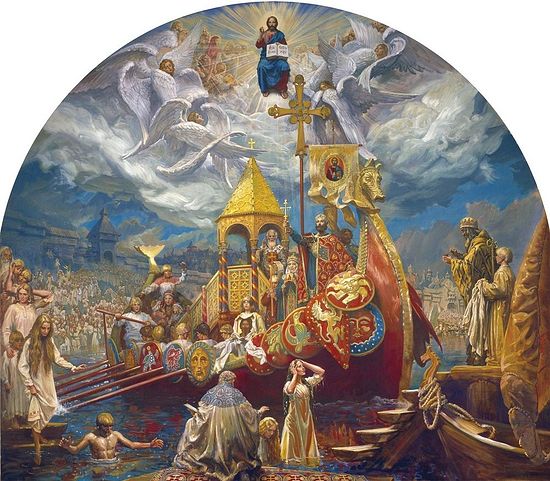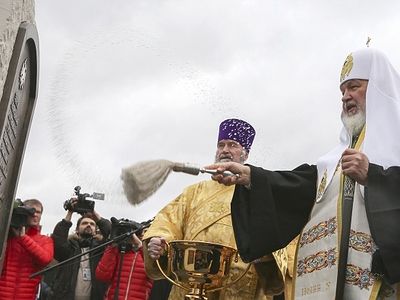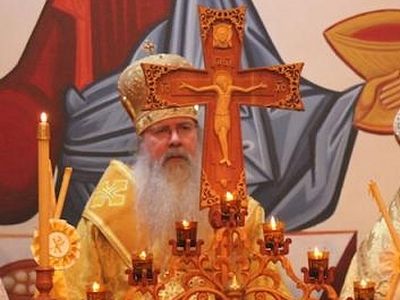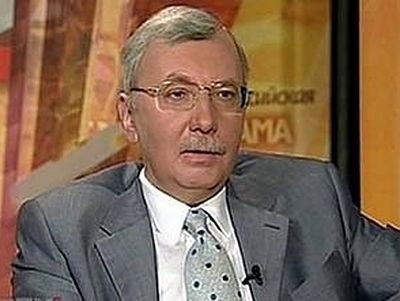Source: Interfax-Religion
Moscow, November 12, 2015
The Christianization of Russia enabled it to create its own civilization and become independent of external forces, Patriarch Kirill of Moscow and All Russia said at the opening ceremony of the 19th World Russian People's Council in Moscow.
"Prince Vladimir's choice was by no means only European nor even only Byzantine. It cannot be regarded as a denial of national and cultural identity. It was a Russian choice that enabled the people to use their gifts and talents in Christianity and create their own civilization in this ministry," the patriarch said.
The patriarch said some people now say that Prince Vladimir's choice was a European choice and the meaning of the Christianization of Russia was that Russia became a part of Europe. The patriarch said if we follow this logic, "we should continue confirming his choice by following the Europeans and if the Europeans lead then we, naturally, are the ones who follow them and there is no special need for reasoning and we just have to copy what is happening in the West and put it on Russian soil."
However, a religious choice and a civilizational choice are not the same things and "a Christian choice cannot be put into geographical frameworks, European or Middle Eastern," the patriarch said.
"Christ has no chosen peoples. He loves everyone and is waiting for everyone," he said.
No civilization can be declared "the creator of higher truth and indisputable right" and that is the temptation of strong civilizations that are capable of "making others obey not only by words, but also by force."
The forum will address the heritage of holy Prince Vladimir and the fate of historical Russia, and also issues relating to the idea of the unity of different eras of domestic history and the presence in each of them of events that spiritually unite Russians with other brotherly peoples.
The World Russian People's Council is an international public organization created in 1993. Representatives of all branches of power, public associations, law enforcement agencies, the highest clerics of Russia's traditional religions, faculty members and students, scientists and cultural figures take part in its meetings. The Assembly is led by the Patriarch of Moscow and All Russia. In 2005, the World Russian People's Council was granted consultative status in the UN. Divisions of the Assembly are operational in some Russian regions.




